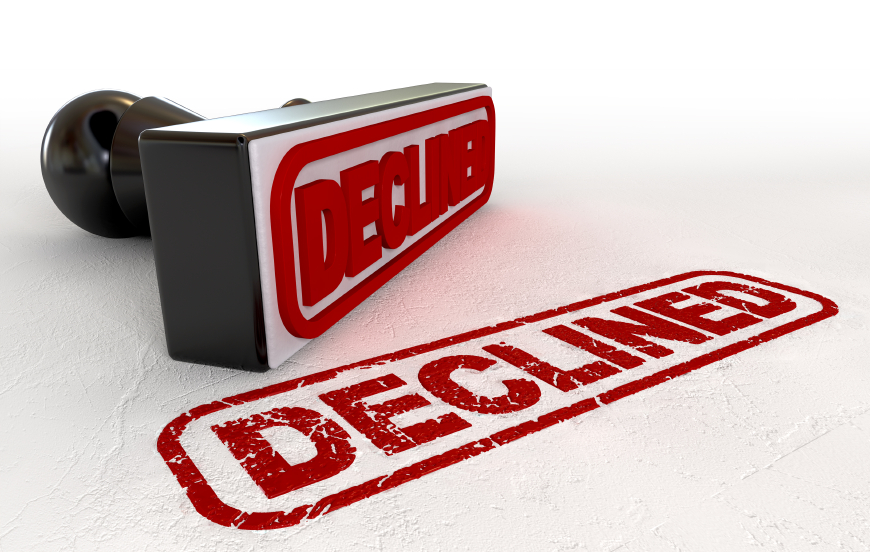 The Federal Circuit panel today rejected TC Heartland’s Petition for Mandamus to direct the United States District Court for the District of Delaware to either dismiss or transfer the patent infringement suit filed against it by Kraft. Heartland had argued that the 2011 amendments to the venue statute have changed the patent venue standard to permitting venue only where a defendant resides or where the defendant allegedly infringes the patent and has a place of business.… More
The Federal Circuit panel today rejected TC Heartland’s Petition for Mandamus to direct the United States District Court for the District of Delaware to either dismiss or transfer the patent infringement suit filed against it by Kraft. Heartland had argued that the 2011 amendments to the venue statute have changed the patent venue standard to permitting venue only where a defendant resides or where the defendant allegedly infringes the patent and has a place of business.… More
It Stays Secret Only if it Doesn’t Matter: Confidentiality at the PTAB
 The PTAB has rules for sealing evidence, but they are different from those in district court, like much else at the PTAB. Both parties in Google Inc. v. Summit 6 LLC, IPR2015-00806, got tripped up by them.
The PTAB has rules for sealing evidence, but they are different from those in district court, like much else at the PTAB. Both parties in Google Inc. v. Summit 6 LLC, IPR2015-00806, got tripped up by them.
In district court, information designated by a party as confidential is treated as such by court until that designation is challenged by the opponent and ruled on by the judge. … More
The New PTAB Trial Rules are Here

Just announced today — the amended PTAB Rules of trial practice (click for a copy) will be published in the Federal Register on April 1, 2016 and take effect at the end of the month.
Changes include
- new testimonial evidence permitted in preliminary response
- Rule-11 type certification required
- Phillips-style claim construction for expiring patents
- word-count instead of page limit on major briefing
From the summary: “This final rule amends the existing consolidated set of rules relating to the United States Patent and Trademark Office (Office or USPTO) trial practice for IPR,… More
One Patent Law, Two Economic Sectors
 Claire Laporte has written a thoughtful article on whether a single patent system can satisfy the competing and perhaps inconsistent demands of life science and high-tech innovation. Of particular interest to this blog is her discussion of the PTAB and whether it has fulfilled its intended purpose of curbing abusive litigation. Read the full article at the Health Affairs Blog, which also links to Claire’s video presentation of this topic.… More
Claire Laporte has written a thoughtful article on whether a single patent system can satisfy the competing and perhaps inconsistent demands of life science and high-tech innovation. Of particular interest to this blog is her discussion of the PTAB and whether it has fulfilled its intended purpose of curbing abusive litigation. Read the full article at the Health Affairs Blog, which also links to Claire’s video presentation of this topic.… More
CAFC Debates a Change in the Venue Standard
AIA trial proceedings, such as IPR’s, provide alternatives to traditional patent litigation, as Scott Kamholz and I discussed in our article “Good, Fast, Cheap Certainty: The Case for Patent Office Litigation,” (recently published in The New York Law Journal). When considering an IPR and/or traditional litigation, factors such as cost, speed and convenience must be considered. On March 11, 2016, the Federal Circuit took up the venue standard in patent litigation —… More
We Never Make Misteaks
The PTAB does sometimes make mistakes and isn’t shy about owning up to them. As long as a rehearing request identifies a dispositive misunderstanding or omission by the Board, it stands a good chance of success.
Boston Scientific Corp. v. UAB (IPR2015-00918, Paper 14) is a case in point. The Petitioner had argued that the patent was vulnerable to intervening art due to an invalid priority claim.… More
A 325(d) Denial on New Art: What the What?
 So a Petitioner files an IPR with new art combinations that weren’t considered during prosecution, including some new references that weren’t applied by the Examiner. Sounds like a good start to a Petition, right? Think again. A recent IPR got denied under 35 U.S.C. § 325(d) for doing that.
So a Petitioner files an IPR with new art combinations that weren’t considered during prosecution, including some new references that weren’t applied by the Examiner. Sounds like a good start to a Petition, right? Think again. A recent IPR got denied under 35 U.S.C. § 325(d) for doing that.
Now stop and let that sink in. An IPR was denied under 325(d) despite citing new art and combinations.… More
Even PTAB Rules Are Made To Be Broken
 Like any good set of rules, the PTAB trial rules provide for their modification or waiver in appropriate situations. That’s right — there’s a rule to break the rules. Three of them, in fact: 37 C.F.R. §§ 42.5(b), 5(c)(1), and 5(c)(3).
Like any good set of rules, the PTAB trial rules provide for their modification or waiver in appropriate situations. That’s right — there’s a rule to break the rules. Three of them, in fact: 37 C.F.R. §§ 42.5(b), 5(c)(1), and 5(c)(3).
· Rule 5(b) authorizes the PTAB to waive or suspend any requirement of parts 1, 41, and 42 of 37 C.F.R.… More
Giving the Petition a Bad Haircut
 The IPR Petition page limit is easy to remember—60 pages, right? Not exactly. In Shenzhen Huiding Tech. Co. Ltd. v. Synaptics Inc., IPR2015-01739 (Paper 8), the PTAB stopped reading the Petition at page 50 and denied all the challenges laid out in the final 10 pages. Talk about a bad haircut!
The IPR Petition page limit is easy to remember—60 pages, right? Not exactly. In Shenzhen Huiding Tech. Co. Ltd. v. Synaptics Inc., IPR2015-01739 (Paper 8), the PTAB stopped reading the Petition at page 50 and denied all the challenges laid out in the final 10 pages. Talk about a bad haircut!
How did this happen? The Patent Owner used its Preliminary Response to point out that the Petitioner had effectively blown through the page limit by incorporating other documents along the way.… More
Answering “I Don’t Know” To a Pivotal Question on Cross
In Silicon Laboratories v. Cresta (IPR2014-00809), both parties relied heavily upon expert testimony to construe key claim terms. Petitioner Silicon Laboratories proffered an expert Declaration with their Petition and second expert Declaration (same expert) with their Reply. The Patent Owner, Cresta Technology, filed an expert Declaration with their Response. Both experts were deposed and the deposition transcripts were submitted as evidence.… More
